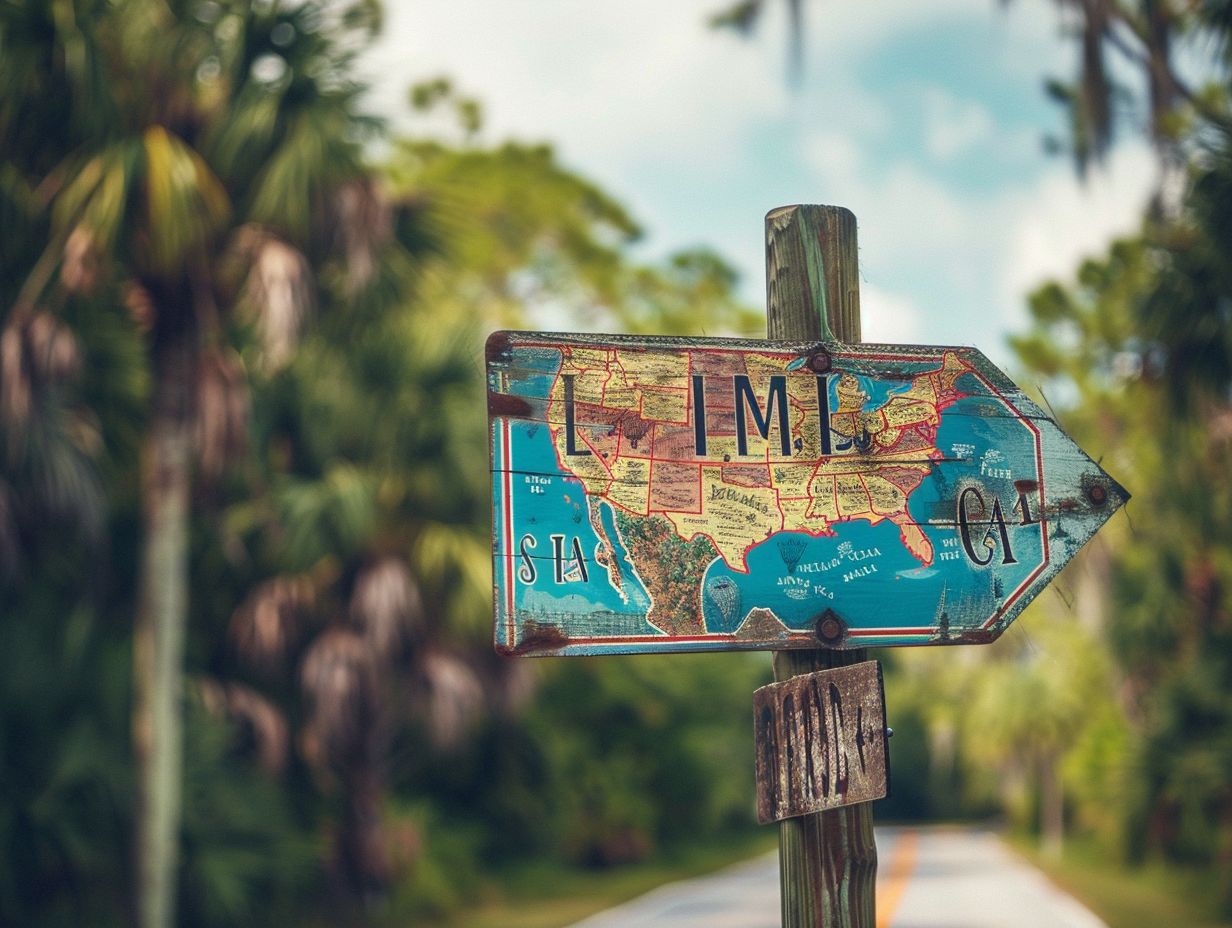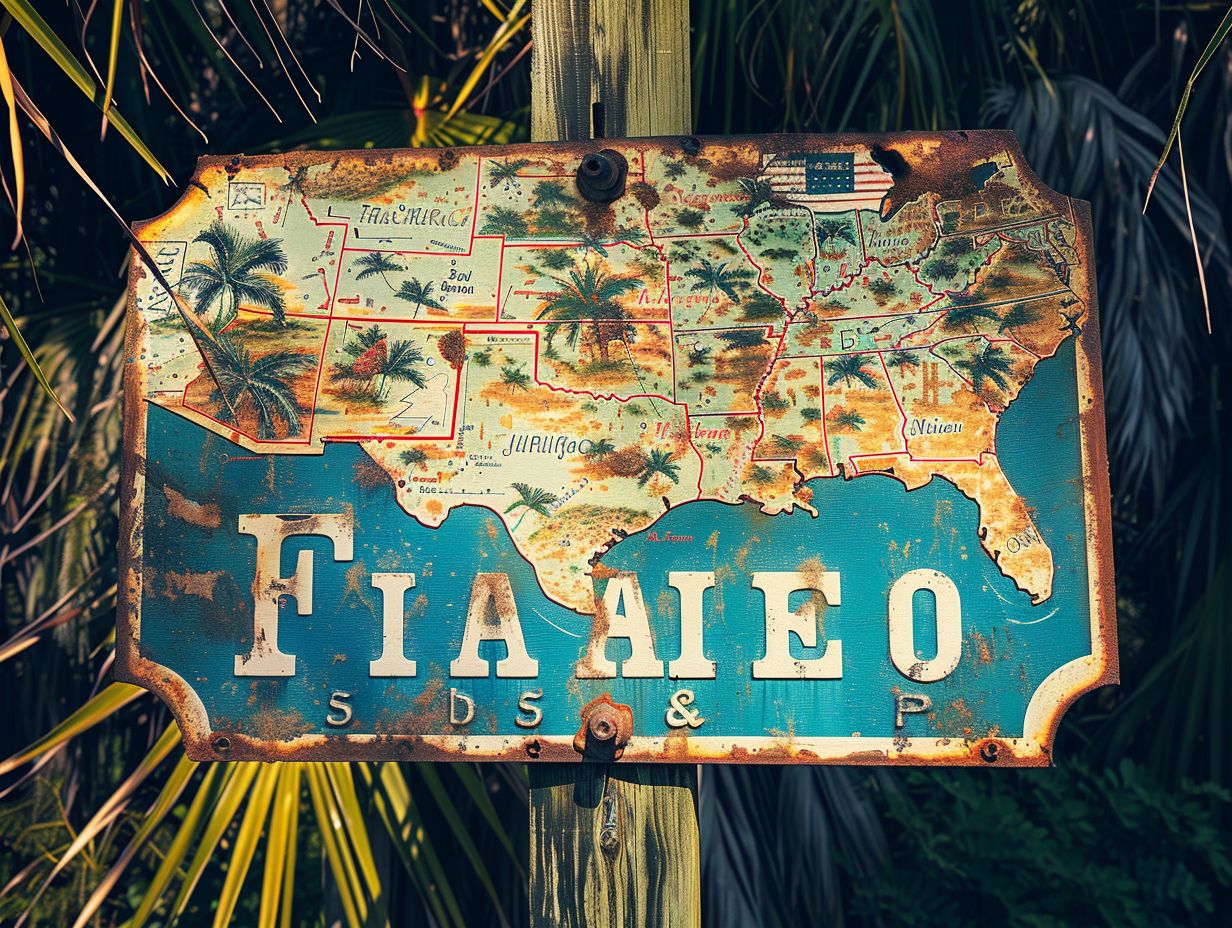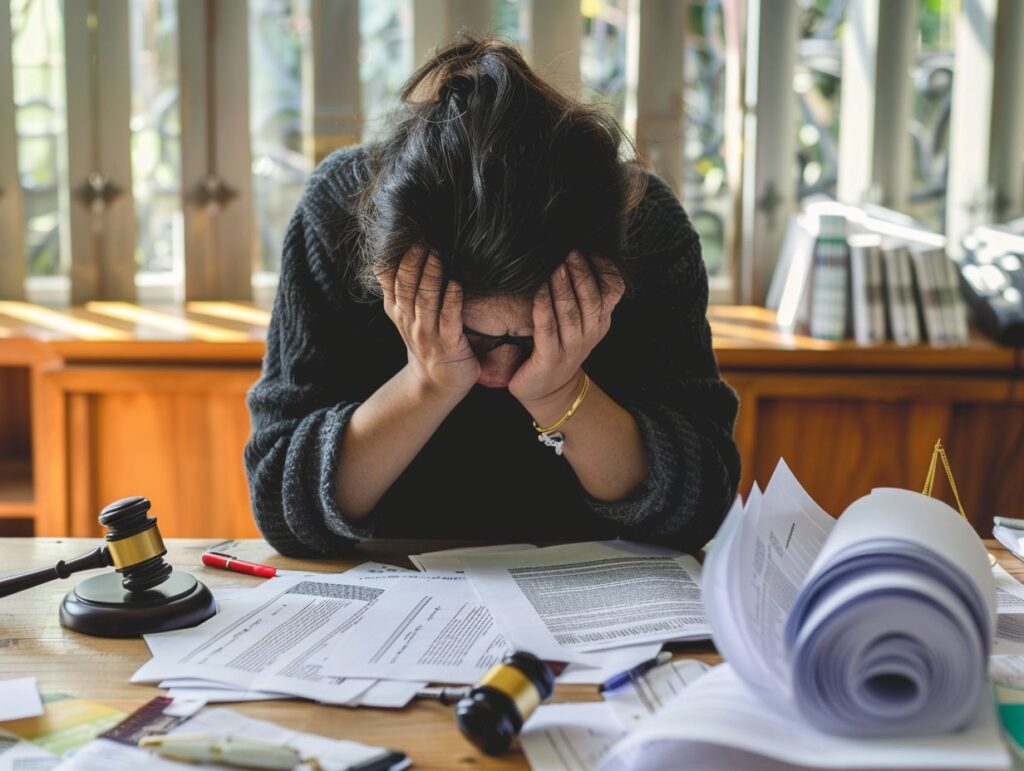Curious about the laws surrounding trespassing and nuisance in Florida? This article will delve into the different types of trespassing, the penalties for violating these laws, and how a nuisance can be proven in the state.
We will also explore the key differences between trespass and nuisance, and whether a trespasser can be held liable for nuisance.
Discover the defenses against trespass and nuisance charges, the steps to take if accused, and how a lawyer can assist in these cases. Learn more about the laws and regulations governing trespass and nuisance in Florida.
Key Takeaways:

- Trespass in Florida can result in criminal penalties and can include entering someone’s property without permission, remaining on property after being asked to leave, or entering a property with the intent to commit a crime.
- Nuisance in Florida is a civil offense that involves interfering with someone’s use and enjoyment of their property. It can include noise, odors, and other disturbances.
- Both trespass and nuisance can result in legal consequences, but they are distinct offenses and require different proof. A trespasser can also be held liable for nuisance if their actions cause a disturbance on someone else’s property.
What is Trespassing?
Trespassing is defined as entering someone else’s property without permission, potentially resulting in legal repercussions under premises liability law, particularly in Florida where property owners hold distinct rights and responsibilities.
What Are the Different Types of Trespassing?
In Florida, trespassing can be categorized into different types based on the visitor’s status, such as invitees, licensees, and trespassers, each with varying implications under premises liability laws.
Invitees are individuals who enter a property with the owner’s express or implied permission for the owner’s benefit or mutual benefit. Florida law requires property owners to owe invitees the highest duty of care, ensuring that the premises are safe and free of hazards.
On the other hand, licensees are guests who enter a property for their own purposes, such as social guests. Property owners are obligated to warn licensees of known dangers that are not obvious.
Trespassers are individuals who enter a property without permission, and property owners have the least responsibility towards them, except for refraining from deliberate harm.
What Are the Penalties for Trespassing in Florida?
Penalties for trespassing in Florida can vary, ranging from fines to imprisonment, depending on the seriousness of the trespass and any related harm or damages, as specified in Florida Statutes.
Fines for trespassing in Florida can begin at $500 for a first offense and can increase for subsequent offenses under Florida Statute 810.09. In cases of aggravated trespassing, where property damage occurs, the penalties may include fines up to $5,000 and imprisonment for up to one year.
Criminal trespassing, which involves entering a structure without permission, can lead to misdemeanor charges under Florida Statute 810.08. For individuals who commit multiple offenses or engage in violent behavior, the penalties may involve more substantial fines and longer periods of imprisonment.
What is Nuisance?
Nuisance in legal terms refers to any condition or activity on a property that interferes with the use or enjoyment of other properties, potentially leading to liability issues for property owners under Florida law.
What Are the Different Types of Nuisance?
Nuisances can be separated into public and private categories, each involving different conditions and legal theories, with specific implications for property owners in Florida.
Public nuisances typically pertain to actions that disrupt the general public’s use and enjoyment of public spaces, such as noisy and disruptive activities in a residential neighborhood or the release of harmful pollutants into the air. Property owners can be held accountable for public nuisances if their actions or inactions contribute to the disturbance.
Conversely, private nuisances impact specific individuals or properties, such as excessive noise from a neighboring property or unpleasant odors coming from a nearby business. In Florida, property owners may encounter legal consequences, such as injunctions or financial damages, if they are determined to be responsible for creating or perpetuating a private nuisance.
How Can a Nuisance Be Proven in Florida?

In Florida, for a nuisance claim to be substantiated, the affected party needs to present evidence showing that the conditions or activities on a property substantially disrupt the use or enjoyment of their premises, as determined by the court.
This evidence can consist of documentation like photos, videos, witness statements, and expert opinions that illustrate the extent of the disruption. Legal concepts like the ‘Coming to the Nuisance’ doctrine or the ‘Balance of Hardships’ principle might be utilized to bolster the argument.
After gathering the evidence, the affected party can initiate a lawsuit in civil court, where the legal procedures for demonstrating a nuisance, including discovery and presenting arguments before a judge or jury, will take place.
What is the Difference Between Trespass and Nuisance?
The primary difference between trespass and nuisance is found in the nature of the interference with property. Trespass occurs when there is physical entry without permission, while nuisance pertains to conditions or activities that harmfully impact neighboring properties. Each of these actions carries distinct legal theories and liabilities under Florida law.
Can a Trespasser Also Be Held Liable for Nuisance?
A trespasser can be held liable for nuisance if their unauthorized entry and subsequent actions create harmful conditions that interfere with the use or enjoyment of the property, according to Florida legal theory.
In Florida, the degree of harm caused by a trespasser’s actions is the key factor in determining their liability for nuisance. For instance, if a trespasser enters a property and engages in activities that lead to environmental pollution, such as illegally dumping waste that contaminates the land or water sources, they can be held responsible for the resulting nuisance.
Florida state laws prioritize protecting property rights and ensuring that individuals who unlawfully intrude on others’ properties are accountable for any damages or disruptions they cause.
What Are the Defenses Against Trespass and Nuisance Charges?
Defending against trespass and nuisance charges in Florida requires employing different legal strategies, such as proving consent, demonstrating self-defense, or showing that the conditions did not lead to the alleged harm, as acknowledged by the court.
Is Consent a Valid Defense for Trespassing?
Consent can act as a valid defense against trespassing charges if it can be demonstrated that the property owner or an authorized person gave permission for entry, thereby removing liability under Florida law.
This defense underscores the importance of clear communication and mutual agreement between the parties involved. For example, if a homeowner permits a friend to enter their property for a social visit and the friend is later accused of trespassing, the homeowner’s consent could serve as a robust defense.
In Florida, legal cases like Smith v. State (2016) have upheld the significance of explicit consent in trespassing cases, emphasizing the necessity of evidence showing authorization to access the property.
Can Self-Defense Be Used as a Defense Against Trespassing?
The use of self-defense can serve as a defense against trespassing charges if the accused can prove that their actions were necessary to prevent imminent harm, in compliance with Florida legal guidelines.
In Florida, the legal system incorporates the principle of self-defense, allowing individuals to safeguard themselves or others from harm. To successfully assert self-defense, the individual must have a reasonable belief that the force employed was essential to counter an immediate threat.
For instance, if an individual unlawfully enters a property and the homeowner perceives a threat, they may be justified in using force to protect themselves.
An illustrative Florida court case demonstrating this concept is Dillon v. State, where the court ruled in favor of the defendant who used force to defend against a trespasser.
What Are the Steps to Take If You are Accused of Trespass or Nuisance?

If an individual is accused of trespass or nuisance in Florida, it is important to seek legal advice, collect evidence to support their defense, and grasp the court procedures to effectively address the charges.
- After seeking legal advice, the next step is to carefully gather any evidence that bolsters their position. This might include photographs, witness statements, or any pertinent documents that can reinforce their case.
- Understanding the court procedures and potential outcomes is crucial. It is advisable to get ready for court by arranging the evidence and familiarizing oneself with their rights and obligations during the legal process. Being well-prepared can significantly influence the outcome of the case and help safeguard their rights.
How Can a Lawyer Help in Trespass and Nuisance Cases?
A lawyer provides essential assistance in trespass and nuisance cases by offering expert legal advice, formulating effective defense strategies, and representing individuals in court to mitigate liability under Florida law. They assist in gathering evidence to support the case, such as property boundary surveys or documentation of repeated disturbances.
Additionally, a lawyer can negotiate with the opposing party to reach a settlement or initiate legal proceedings if required. Legal strategies may involve filing restraining orders, seeking injunctions, or pursuing compensation for damages incurred.
Professional legal representation is crucial in navigating the complexities of property law and ensuring that rights are protected throughout the legal process.
What Are the Laws Regarding Trespass and Nuisance in Florida?
The Florida Statutes outline the laws concerning trespass and nuisance in Florida. These statutes detail the legal definitions, liabilities, and court procedures for addressing such cases in order to protect property owners and residents.
What is the Statute of Limitations for Trespass and Nuisance Cases in Florida?
The statute of limitations for trespass and nuisance cases in Florida typically varies from four to seven years, depending on the specific circumstances and the nature of the harm caused. These limitations aim to ensure that legal actions are initiated within a reasonable timeframe from the date of the alleged offense.
For instance, in a scenario where someone trespasses on another person’s property without permission and causes damage, the countdown begins from the trespass incident. The same principle applies to nuisance cases, where ongoing disturbances or harm to a property must be dealt with within the permissible time frame.
In Florida, these regulations can be found in statutes like Florida Statutes Chapter 95, which outlines the general limitations periods for various types of civil actions.
What is the Punishment for Violating Trespass and Nuisance Laws in Florida?
Violating trespass and nuisance laws in Florida can lead to different consequences, such as fines, imprisonment, and responsibility for damages, as determined by the court depending on the seriousness of the violation.
For example, in a recent case where individuals trespassed on private property and caused substantial damage, the court directed them to pay significant fines and spend a short time in jail. The severity of the penalties imposed by the court can be influenced by factors like the intention behind the violation, the level of harm caused, and any previous offenses.
Frequently Asked Questions
1. What qualifies as trespass under Florida law?

Trespass in Florida is defined as knowingly entering or remaining on someone else’s property without their permission. This can include physical trespassing, such as walking on someone’s land without their consent, or constructive trespassing, such as throwing objects onto someone’s property.
2. Can I be charged with trespass if I didn’t know I was on someone else’s property?
Yes, in Florida, ignorance of the law is not a defense. If you enter or remain on someone else’s property without their permission, you can still be charged with trespass even if you were not aware that you were on private property.
3. What is considered a nuisance under Florida law?
A nuisance is any condition or activity that interferes with the use and enjoyment of someone’s property. This can include loud noises, offensive odors, or any other activity that disrupts the peace and comfort of others.
4. What should I do if I am being accused of creating a nuisance?
If you are being accused of creating a nuisance, it is important to take the complaint seriously. You may be able to resolve the issue by discussing it with the person who filed the complaint and finding a mutually agreeable solution. If the issue cannot be resolved, you may need to seek legal advice.
5. Is it illegal to use someone else’s property without their permission in Florida?
Yes, using someone else’s property without their permission is considered trespass in Florida. This includes using someone else’s land for recreational activities or taking items from their property without their consent.
6. Can I be held liable for a nuisance created by a previous owner of my property?
Yes, as a property owner, you may be held responsible for any nuisance created by a previous owner. It is important to thoroughly inspect a property before purchasing it to ensure that there are no existing nuisances that could potentially cause legal issues in the future.























Rate this article:
Average rating 0 / 5. Vote count: 0
No votes so far! Be the first to rate this post.
No Comments yet!